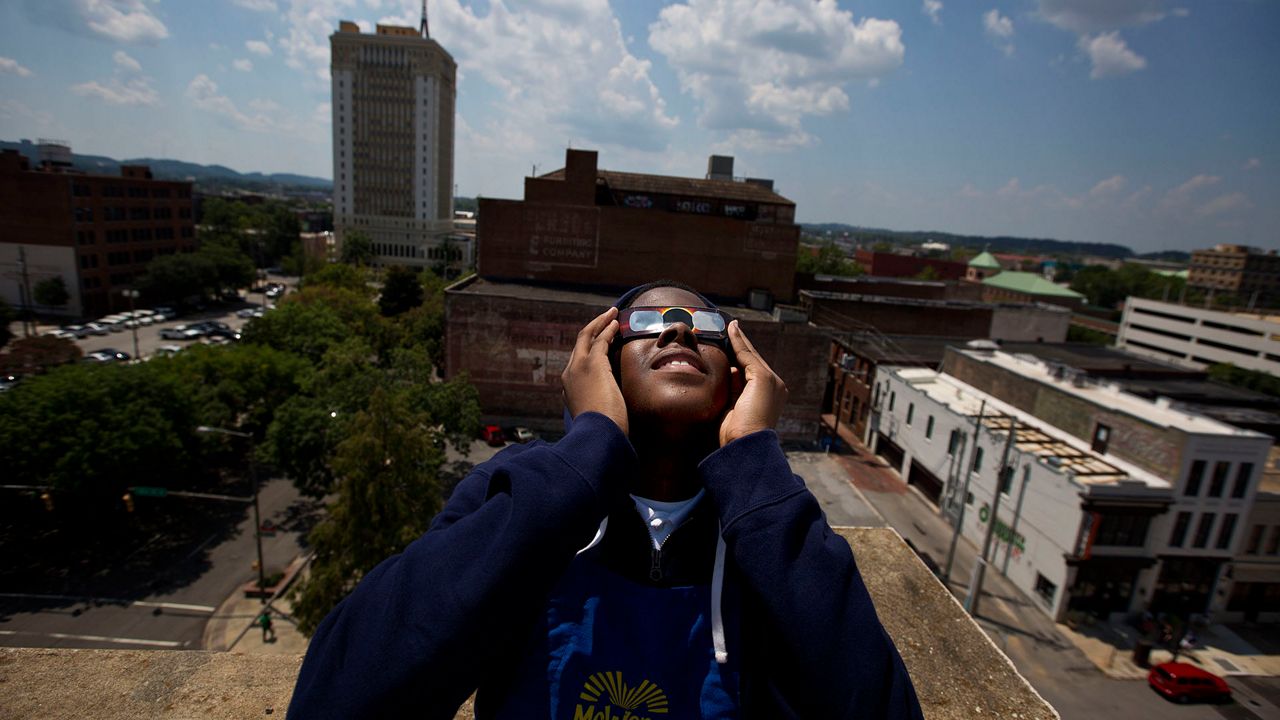OHIO — Ohio will have a front-row seat to a monumental event on April 8: the solar eclipse.
This time around, 55 of 88 Ohio counties are in the path of totality. While this event is causing a lot of excitement for both Ohioans and out-of-towners looking to catch a glimpse of the eclipse, it has health officials urging caution.
"Our main concern is with eye safety. I want to caution all Ohioans that it is never safe to look directly at the sun, even during the brief period of totality," said Ohio Department of Health Director Dr. Bruce Vanderhoff during a press conference Thursday.
Even though the moon is blocking the sun, the sun's rays are still peaking through, which can cause immediate and permanent damage to eyesight, Vanderhoff said.
Vanderhoff said there are two ways people can view the solar eclipse safely:
- Using solar eclipse glasses that have the approved safety standard printed on them with this marking: ISO 12312-2. He also urged people to make sure they are using the eclipse glasses being produced for this specific event and not other eclipses in the past, which is why it's important to look for the approved safety standard marking.
- Visit NASA's website, who will have a live stream of the eclipse.
Vanderhoff stressed that sunglasses, cameras and telescopes are not safe for viewing the eclipse.
Dr. Jeffrey Walline, the acting dean for the Ohio State University College of Optometry, related the possible damage to a sunburn on the skin. However, while it could take hours for a sunburn to develop on your skin, but just seconds to minutes for the sun to burn the back part of the eye.
"The skin on your shoulder and your arms can heal, and it can heal relatively quickly. The retina cannot heal, so you can lose your vision permanently," Walline said.
The Ohio Department of Health has a slew of other tips to remain safe during the eclipse on its website.
For more solar eclipse content, click here.





